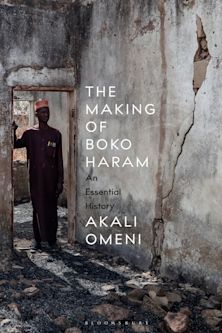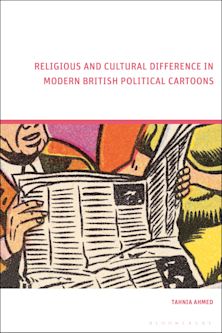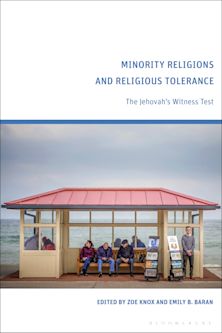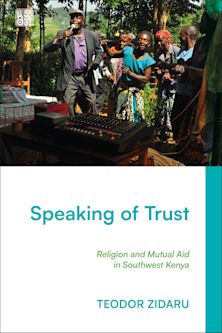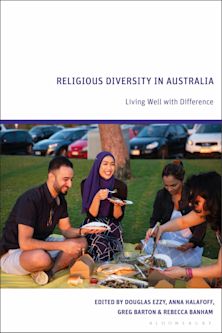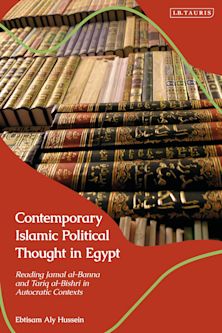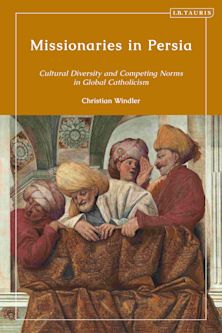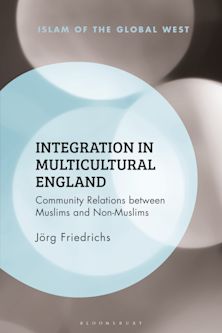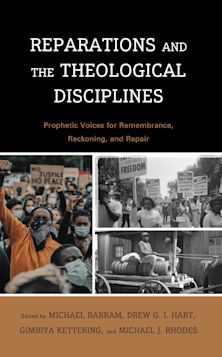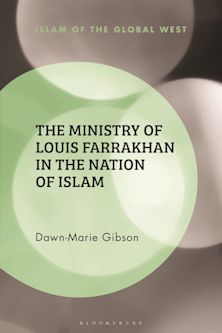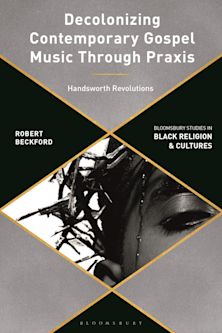- Home
- ACADEMIC
- Religious Studies
- Religion and Politics
- The Lively Experiment
The Lively Experiment
Religious Toleration in America from Roger Williams to the Present
Chris Beneke (Anthology Editor) , Christopher S. Grenda (Anthology Editor) , Teresa Bejan (Contributor) , James B. Bennett (Contributor) , Jacob Betz (Contributor) , Steven Green (Contributor) , Evan Haefeli (Contributor) , Cristine T. Hutchison-Jones (Contributor) , Christopher C. Jones (Contributor) , Susanna Linsley (Contributor) , Paul E. Matzko (Contributor) , David Mislin (Contributor) , Andrew R. Murphy (Contributor) , Keith Pacholl (Contributor) , Nicholas Pellegrino (Contributor) , Shawn F. Peters (Contributor) , Scott Sowerby (Contributor) , Denise A. Spellberg (Contributor) , Ronit Stahl (Contributor) , Evelyn Sterne (Contributor) , Kip A. Wedel (Contributor) , Jon Butler (Foreword)
The Lively Experiment
Religious Toleration in America from Roger Williams to the Present
Chris Beneke (Anthology Editor) , Christopher S. Grenda (Anthology Editor) , Teresa Bejan (Contributor) , James B. Bennett (Contributor) , Jacob Betz (Contributor) , Steven Green (Contributor) , Evan Haefeli (Contributor) , Cristine T. Hutchison-Jones (Contributor) , Christopher C. Jones (Contributor) , Susanna Linsley (Contributor) , Paul E. Matzko (Contributor) , David Mislin (Contributor) , Andrew R. Murphy (Contributor) , Keith Pacholl (Contributor) , Nicholas Pellegrino (Contributor) , Shawn F. Peters (Contributor) , Scott Sowerby (Contributor) , Denise A. Spellberg (Contributor) , Ronit Stahl (Contributor) , Evelyn Sterne (Contributor) , Kip A. Wedel (Contributor) , Jon Butler (Foreword)
You must sign in to add this item to your wishlist. Please sign in or create an account
Description
Three hundred and fifty years ago, Roger Williams launched one of the world’s first great experiments in religious toleration. Insisting that religion be separated from civil power, he founded Rhode Island, a colony that welcomed people of many faiths. Though stark forms of intolerance persisted, Williams’ commitments to faith and liberty of conscience came to define the nation and its conception of itself. Through crisp essays that show how Americans demolished old prejudices while inventing new ones, The Lively Experiment offers a comprehensive account of America’s boisterous history of interreligious relations.
Table of Contents
Part One. Roger Williams and the Seventeenth-Century’s Lively Experiments
Chapter 1. “How Special was Rhode Island? The Global Context of the 1663 Charter” Evan Haefeli
Chapter 2. “’Livelie Experiment’ and ‘Holy Experiment’: Two Trajectories of Religious Liberty” Andrew R. Murphy
Chapter 3. “Toleration and Tolerance in Early Modern England” Scott Sowerby
Chapter 4. “‘When the Word of The Lord Runs Freely’: Roger Williams and Evangelical Toleration” Teresa Bejan
Part Two. Toleration, Revival, and Enlightenment in the Long Eighteenth Century
Chapter 5. “Muslims, Toleration, and Civil Rights, from Roger Williams to Thomas Jefferson” Denise Spellberg
Chapter 6. “‘An encroachment on our religious rights’: Methodist Missions, Slavery, and Religious Toleration in the British Atlantic World” Christopher C. Jones
Chapter 7. “Between God and our own Souls: The Discussion over Toleration in Eighteenth-Century America” Keith Pacholl
Part Three. Divisions Within: Protestants and Catholics in the New Nation
Chapter 8. “‘Enlightened, Tolerant, and Liberal’: Catholic Influences on Religious Liberty in the New Republic.” Nicholas Pellegrino
Chapter 9. “Contentious Unity and Tolerant Schisms: Partisanship and ‘Internal’ Toleration in Early National Charleston and New York” Susanna Linsley
Chapter 10. “The Nineteenth-Century ‘School Question’: An Episode in Religious Intolerance or an Expansion of Religious Freedom?” Steven Green
Part Four. Pluralism and Its Discontents: Late Nineteenth and Early Twentieth-Century Contests Over Religious Difference
Chapter 11. “There is no such thing as a reverend of no church”: Incarcerated Children, Nonsectarian Religion, and Freedom of Worship in Gilded Age New York City” Jacob Betz
Chapter 12. “The Cost of Inclusion: Interfaith Unity and Intra-Faith Division in the Formation of Protestant-Catholic-Jewish America” David Mislin
Chapter 13. “Dog Tags: Religious Toleration and the Politics of American Military Identification” Ronit Stahl
Part Five. Ecumenism’s Paradoxes: Religious Dissent and the Redefinition of the Modern Religious Mainstream
Chapter 14. “‘This Is a Mighty Warfare that We Are Engaged In:’ Pentecostals in Early Twentieth-Century New England” Evelyn Sterne
Chapter 15. “How the Persecution of Jehovah’s Witnesses Changed American Law and Religion” Shawn Francis Peters
Chapter 16. “The First Mormon Moment: The Latter-Day Saints in American Culture 1940-65” Christine Hutchison-Jones
Chapter 17. “Fundamentalists Under Fire: Carl McIntire, Billy James Hargis, and State Censorship of Religious Broadcasting” Paul Matzko
Part Six. Civil or Religious?: The New Boundaries of Religious Tolerance
Chapter 18. “Neither Spiritual nor Religious: The Anti-Cult Movement, Intolerance, and the Invention of Non-religious Religions” James Bennett
Chapter 19. “America Beyond Civil Religion: The Anabaptist Experience” Kip Wedel
Product details
| Published | Mar 19 2015 |
|---|---|
| Format | Ebook (PDF) |
| Edition | 1st |
| Extent | 1 |
| ISBN | 9798216215752 |
| Imprint | Rowman & Littlefield Publishers |
| Publisher | Bloomsbury Publishing |
About the contributors
Reviews
-
The line from religious intolerance to religious tolerance to pluralism was not straight and uncomplicated. This outstanding anthology, born out of a conference celebrating the 350th anniversary of Rhode Island’s 1663 charter, provides a plethora of case studies from the Colonial era (with especially good analyses of Roger Williams, William Penn, and the Methodist relationship to slavery in the Caribbean) and the 19th century. Contributors also provide contemporary stories of ‘Mormon moments,’ the movement against ‘cults’ in the 1970s, and the liberal effort to push the religious right off the air using the Fairness Doctrine as a weapon. What is clear throughout is how much toleration has been hard for people to tolerate. ‘What people do with their religious liberty can seem downright appalling to others,’ the editors note, and the essays are full of such examples. The Rhode Island context results in multiple discussions of the complexities of Roger Williams, whose emphasis on both liberty and proselytization helps explain the ‘American polity’s unique and somewhat paradoxical combination of religious disestablishment and a religiously charged public sphere.’ Top-notch scholarship on a topic of great contemporary importance. Summing Up: Essential. All levels/libraries.
Choice Reviews
-
The Lively Experiment’s value is its examination of an issue that is both historical and contemporary, providing readers with new perspectives on the evolution of religious toleration.
Journal of American History
-
This collection advances our knowledge of U.S. religious liberty history in a lively way.
Voice of Reason
-
Chris Beneke and Christopher S. Grenda are among the best students of religious liberty and church-state relations in early America. In The Lively Experiment, they have put together a fine collection of essays on religious toleration in America from the early colonies to the present day. This volume should be read by anyone interested in the development of religious liberty in the United States.
Mark Hall, George Fox University
-
Collectively, the essays in The Lively Experiment forcefully underline why the experiment of constructing religious freedom in a liberal polity has been so lively: the practice of toleration is a constantly negotiated process, not a preordained outcome.
Charles L. Cohen, University of Wisconsin–Madison
-
The essays in this volume challenge us to understand that “religious toleration” and “religious liberty” are not one and the same. Toleration is sometimes painful and rarely, if ever easy. Liberty may be “inalienable,” but the question of whether it is communal—held by groups and not just individuals—vexes us even today. The Lively Experiment is an ambitious exploration of a complicated commitment that lies at the heart of American identity.
Maura Jane Farrelly, Brandeis University











